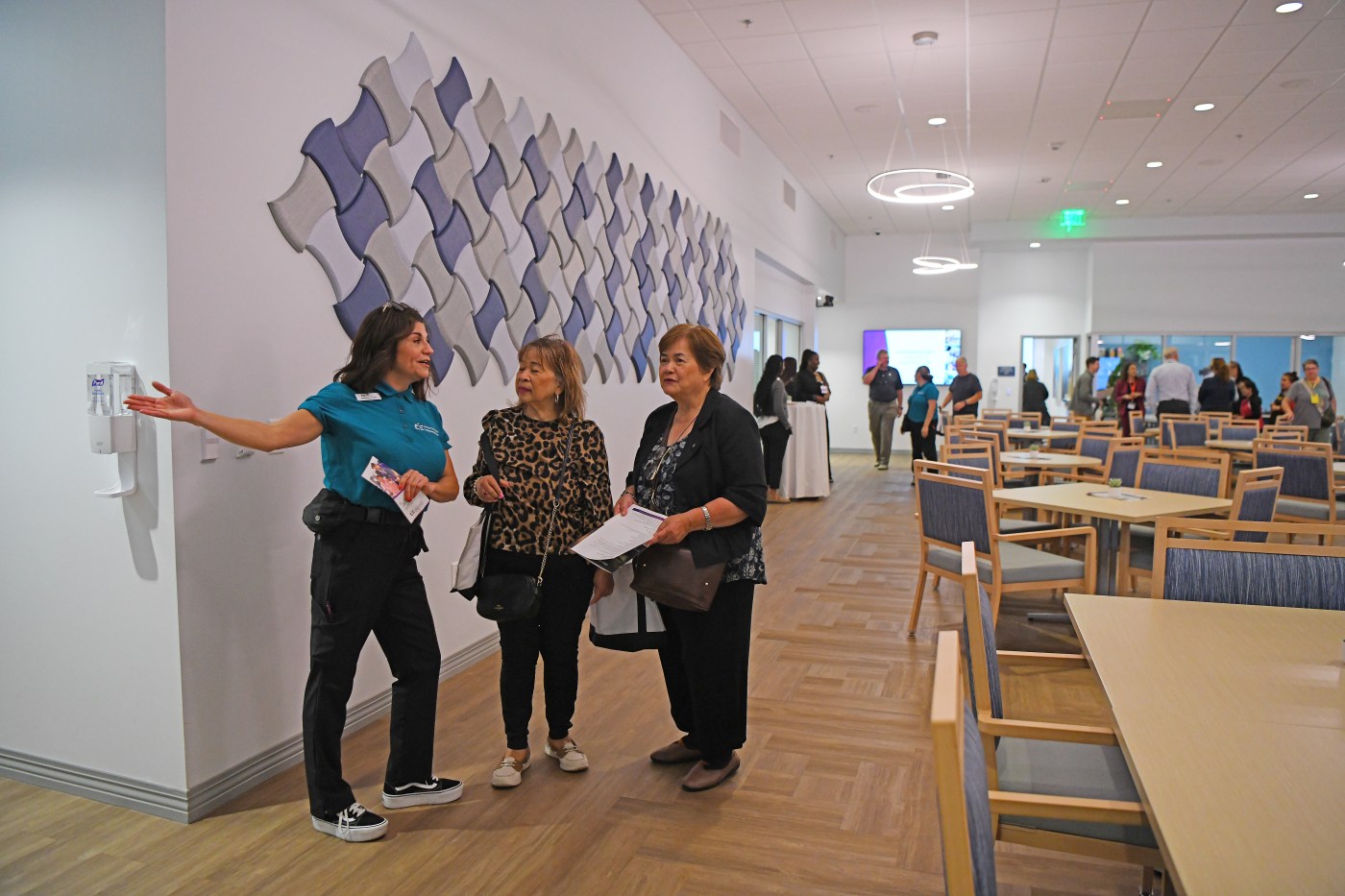
Three recently opened East Bay senior centers offering all-inclusive care programs aim to bring peace of mind to families balancing their loved one’s independence with the need for more hands-on care.
In El Sobrante on Tuesday, seniors sat around tables in the Social Day Center of the new Program of All-Inclusive Care for the Elderly, or PACE, facility, enjoying a snack while listening to Spanish music, chatting among themselves and playing Loteria, a Mexican board game similar to bingo. Others were in the gym or undergoing examinations in the medical clinic.
Related Articles
Bay Area mobile home residents offer to buy property for $23.5 million
San Jose hotel may be transformed into memory and residential care hub
How to maintain a caring relationship with someone with Alzheimer’s disease
Legionnaires’ disease: What it is, and how to prevent it
You can slow cognitive decline as you age, large study finds. Here’s how
The one-stop shop, operated by East Bay nonprofit Center for Elders’ Independence, opened in West Contra Costa County on Aug. 2. Two additional centers opened the same day in Oakland’s Temescal neighborhood and Livermore, doubling the nonprofit’s footprint in a single day.
The openings come at a time when many communities, including those in the Bay Area, are grappling with a rapidly aging population, referred to as the silver tsunami.
“The population of Californians over the age of 60 is growing three times faster than the national average. This shift is reshaping our communities — and it calls on all of us to respond with care, innovation, and commitment,” said Maria Zamora, Center for Elders’ Independence CEO and president, during the El Sobrante center’s grand opening celebration on Aug. 2.
About 30% of Contra Costa County’s 1.16 million residents and 29% of Alameda County’s residents are ages 55 and older, according to the latest U.S. Census data.
The mission for Center for Elders’ Independence is to provide social, physical and medical support to some of the most vulnerable, work the nonprofit has been doing for more than 40 years.
To qualify for care at the center, a participant must be at least 55 years old and living with health challenges that make living independently a challenge but are still able to live at home safely with support.
The specific qualifications required to receive PACE services is a key barrier, said Jane King, senior vice president of operations at Center for Elders’ Independence, who noted demand is only growing. Legislative solutions expanding medical services for seniors are up to the state and federal governments and advocacy is ongoing, she said.
“This is still a small subset of the health care model but it’s definitely still expanding and we’re trying to meet the demand of those who are aging, are frail, have those medical needs and want to live in their own home and not be institutionalized,” King said.
More than 140 participants are already receiving personalized care at the El Sobrante location, which serves those living in west Contra Costa County. Another center in Concord provides services to central and east county residents.
East Oakland was also home to one Center for Elders’ Independence PACE location before a second opened this month. Another operates out of San Leandro.
In addition to medical care, participants also receive assistance with day-to-day tasks like laundry and personal hygiene, meals and more general social activities. Wrap-around services have had major impacts on the quality of life for participants, said Jessenya Ramirez Sacasa, director of the PACE West County center.
Beyond the individual care provided to each participant, programs like PACE can bring peace of mind to loved ones caring for aging family members, said Dr. Raymond Roque, a regional medical director with Center for Elders’ Independence.
On top of caring for their aging parents by managing appointments, medications and household tasks, many adult children are managing their own everyday responsibilities like working and caring for their own children.
Center for Elders’ Independence and other PACE program providers take on much of that responsibility, including providing transportation and mailing medications directly to a participant’s home.
“Everybody is so busy,” said Roque, who noted he grew up in a multi-generational home. “This is one of those solutions.”